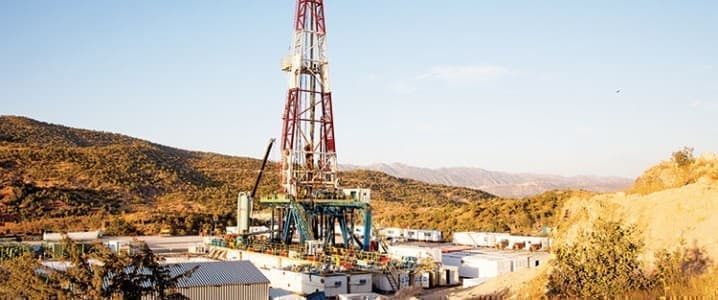The U.S. Says Kurdistan’s Oil And Gas Are Important Supply

The United States considers Kurdistan’s oil and gas industry an important source of supply, the newly appointed US Consul General to Erbil said on Monday.
Mark Stroh, who was recently appointed as the new US Consul General to the capital city in the Kurdistan region, met with Kurdistan’s Minister of Electricity, Kamal Mohammad Saleh, to discuss the energy and oil industries, according to a readout from the meeting reported by Shafaq News.
Last week, Stroh met with the Kurdistan Regional Government’s Prime Minister, Masrour Barzani. Stroh highlighted the U.S. commitment “to deepening cooperation and fostering strong bilateral ties with the Kurdistan Region,” the Kurdistan Regional Government (KRG) said in a statement.
During Monday’s meeting with Kurdistan’s Minister of Electricity, the US Consul General discussed issues related with the energy and oil industry and expressed hopes that the federal government of Iraq and the semi-autonomous region of Kurdistan would manage to work together and ratify the new hydrocarbon law.
The two officials also discussed the ongoing half of crude oil exports from Kurdistan via a pipeline through Turkey and the Turkish port of Ceyhan on the Mediterranean.
Turkey is in the process of brokering a deal between the central Iraqi government and the authorities of Kurdistan on sharing the revenues from crude oil production in the northern Iraqi region. The deal, according to Bloomberg, which cited unnamed Turkish officials, would help resume the operation of the pipeline that takes the crude from Kurdistan to the Turkish port of Ceyhan.
Kurdistan’s crude oil exports were halted on March 25 by the federal government of Iraq. The halt came after the International Chamber of Commerce ruled in favor of Iraq against Turkey in a dispute over crude flows from Kurdistan.
Iraq, OPEC’s second-largest producer after Saudi Arabia, is currently exporting oil only via its southern oil export terminals. Around 450,000 bpd of exports from the northern fields and from Kurdistan continue to be shut in due to the dispute.




